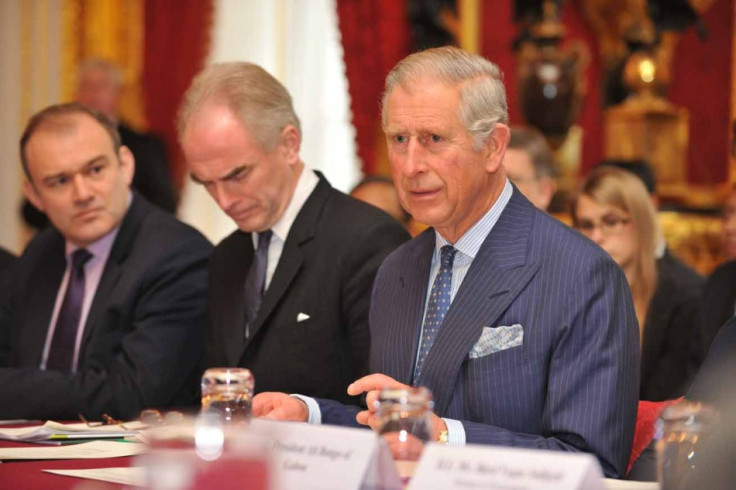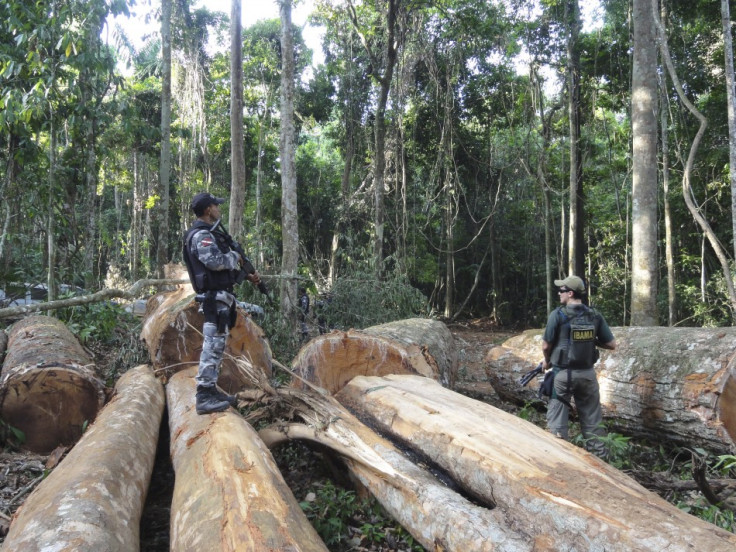Prince Charles Launches Scathing Attack on Climate Change Sceptics
Prince of Wales says scientists are battling 'International Association of Corporate Lobbyists'

Prince Charles has attacked climate change sceptics and businesses that damage the environment in a speech at Clarence House.
The Prince of Wales was addressing delegates from the scientific community and heads of states at a meeting on tropical forest science.
It coincided with a joint announcement from the governments of the UK, Norway, US, Germany and Australia, which have committed to take practical action to save the rainforests. Climate change talks are also being held in Doha and Qatar.
In his speech, Charles directly addressed climate change sceptics who dismiss evidence that the planet is being destroyed by greenhouse gas emissions and deforestation.
He said: "We need to support all efforts around the world to help increase people's awareness of the vital importance of the tropical forests. If people can really understand that forests are critical to human health and welfare, then surely we increase the chances of more sensitive and informed decisions.
"You would think so, wouldn't you? But when it comes to the 'Incorporated Society of Syndicated Sceptics' and the 'International Association of Corporate Lobbyists' any scientist is likely to find him or herself up the proverbial double bind gumtree!"
Charles has spoken out against climate change sceptics before. In 2001, addressing an audience of MEPs at a conference in Brussels, he said they were denying a huge body of evidence showing the realities of climate change.
"I would ask how these people are going to face their grandchildren and admit to them they failed their future. [They are playing] a reckless game of roulette with the future inheritance of those who come after us."

In his speech at Clarence House, Charles said the rainforests were "critical" in ensuring the global climate is stabilised, as they are responsible for providing food, water and energy security. WWF estimates that an area of tropical forest the size of 36 football fields is lost every minute.
"Reducing deforestation is also very likely the single most effective way of avoiding the mass extinction of animals and plants," he said.
"One of the many disheartening aspects of these sorts of gatherings is the number of times I, and I am sure you, have repeated all this. I sometimes wonder whether I am dreaming this incessant nightmare of hearing the echo of my own voice."
While championing efforts being made by Brazil, Guyana and Costa Rica, which are all working to reduce and reverse deforestation, he also warned that half of the world's tropical forests have disappeared in his lifetime, and that the risk of not addressing climate change was "far too great".
"Whereas in science a hypothesis is tested until absolute proof is secured, in medicine there is no time to be absolutely certain. If a child is presented to a doctor with a fever, the doctor cannot wait until results of tests come back from the lab. The doctor must act on what evidence is already there.
"The symptoms are very clear; the models have become ever more precise. If we see our forests and the planet as our patient, the risk of delay is so enormous that we cannot wait until we are absolutely sure the patient is dying.
"That is a monumental risk no doctor would ever take. The Earth's physical, chemical and biological systems are crying out to be treated - now."
© Copyright IBTimes 2024. All rights reserved.







